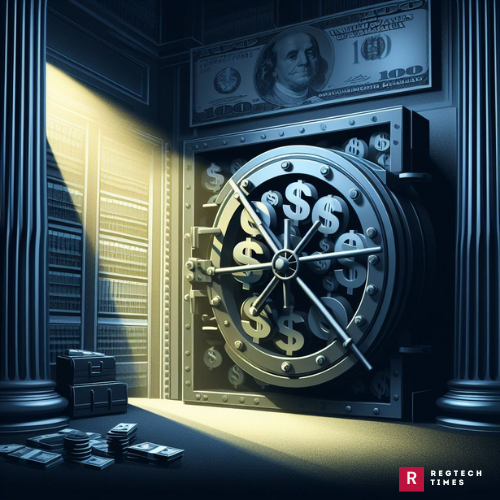The US banks are enmeshed in a compelling tale of examination and disclosure as they pursue financial integrity with unwavering determination. Recent examinations of significant US banks, such as Citibank, JP Morgan Chase, and Bank of America, have uncovered concerning anomalies, prompting the Biden administration to increase its level of awareness.
Amid this chaos, an unsettling pattern appears: secret assets that are buried deep in off-balance sheet operations avoid being discovered by the general public. The country is mulling over the consequences of these discoveries, with billions on the line and transparency in jeopardy. This is paving the way for an important investigation of US banks into the regulatory control and integrity of the financial system.
The Basel III Endgame Rule: Potential Impact on Capital Constraints for US Banks
The Basel III Endgame Rule’s vocal opponent, Jamie Dimon, cautions that the new regulations may severely tighten capital requirements for big US banks. He contends that the rule would unnecessarily raise these restrictions by 20 to 25 percent, which would have a detrimental effect on American households and markets. This worry adds gasoline to the continuing discussion about the execution of the regulation and its effects on the economy as a whole.
The Veil of Off-Balance Sheet Assets
Billions of dollars worth of off-balance sheet assets are hidden beneath the surface of America’s financial behemoths, raising concerns and triggering inquiries of risk and transparency. Unknown and perhaps hazardous assets are allegedly being kept out of the public eye by JPMorgan Chase, Bank of America, and Citibank, according to recent disclosures.
The Magnitude of Off-Balance Sheet Activities
The Federal Financial Institutions Examination Council (FFIEC) has released some startling statistics regarding US Banks. It’s estimated that JPMorgan Chase alone has $3.227 trillion in off-balance sheet assets, with Bank of America and Citibank holding $1.6 trillion and $2.6 trillion, respectively. These off-balance sheet activities, which the Federal Reserve has characterized as “highly diverse,” involve a variety of financial instruments and are reminiscent of the kinds of actions that played a part in the financial crisis of 2008.
Citigroup’s Controversial Role
Citigroup is notable for having enormous amounts of off-balance sheet assets, which are frequently used to manipulate capital needs. Still, the shadow of Citigroup’s demise in the 2008 financial crisis hangs over them, a reminder not to take reckless risks and to ignore regulatory blind spots.
Resistance to Stricter Capital Requirements
Stricter capital fund regulations were proposed by the Federal Reserve in July of last year to help banks protect their balance sheets from recessions. Nonetheless, during a Senate hearing in December, the CEOs of significant American banks, such as JPMorgan Chase, Wells Fargo, and Bank of America, expressed their objections. The vocal CEO of JPMorgan Chase, Jamie Dimon, issued a dire warning about the proposed reforms, pointing out possible harm to the banking industry and the economy.
Banking Interests vs. Financial Security
A fundamental contradiction in the regulatory landscape is highlighted by the conflict between the interests of banks and the stability of the global financial system. Banks fight back against what they see as unduly onerous restrictions that could impair their profitability and capacity to promote economic growth, while authorities attempt to curb risk-taking and strengthen resilience in the banking industry.
The future of US banks is full of obstacles and unknowns as they struggle with the disclosure of secret assets and the possibility of more stringent laws. Regulators, banks, and legislators will need to work together and exercise caution to strike a balance between the demands of accountability and openness and the necessity of developing a robust and dynamic financial system. A more stable and secure future for everybody can only be ensured by combining efforts to illuminate the shadows cast by the financial system.



